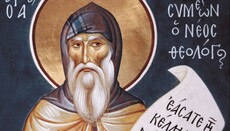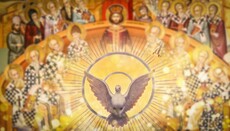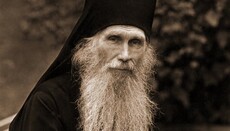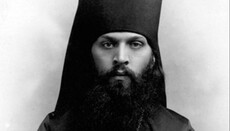Stories about the early Church: apostles, prophets, and teachers
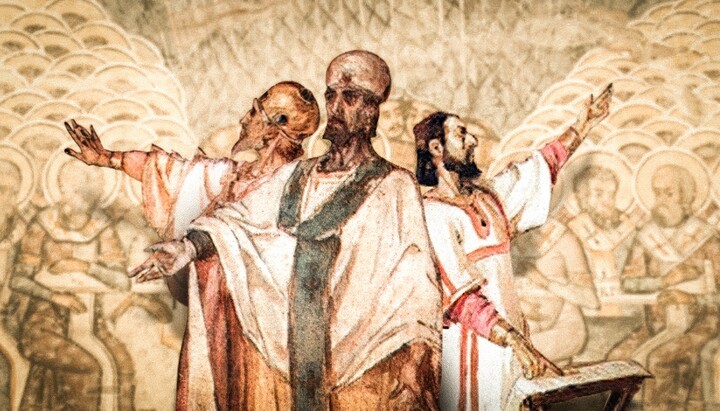
In the early days of the Church, there were several types of ministries. In addition to bishops and deacons, there were also apostles, prophets, and didascals (teachers). Who were these individuals, and what kind of service did they perform?
Paul the Apostle mentions the following three Church ministries in his epistles:
• “And God has placed in the church first of all apostles, second prophets, third teachers, then miracles, then gifts of healing, of helping, of guidance, and of different kinds of tongues” (1 Cor. 12:28).
• “So, Christ Himself gave the apostles, the prophets, the evangelists, the pastors and teachers, to equip his people for works of service, so that the body of Christ may be built up…” (Eph. 4:11-12).
Such ministries are long gone in the present-day Church, so it is unclear what exactly Paul the Apostle meant. Given the scarcity of sources on the history of the early Church, it is not an easy task to imagine what these ministries were like. In addition to mentions in the New Testament, we can draw information from early Christian writings, such as the Didache or The Teaching of the Twelve Apostles (mid-2nd century), the Church canons (Canones ecclesiastici, late 2nd century), and the Apostolic Constitutions, which, according to church historians, represent a compilation of various rules from the 2nd, 3rd, 4th, and even the beginning of the 5th century. Some information is also found in the Clementines, a work of the 2nd to early 3rd century, previously attributed to Clement of Rome, the book “The Shepherd of Hermas” (2nd century), and the writings of Ignatius of Antioch and Dionysius of Alexandria. The church historian Eusebius of Caesarea (3rd-4th century) also mentions these ministries.
General remarks about all three ministries
The most important thing to note is that the ministries of apostles, prophets, and teachers were charismatic, not hierarchical, unlike the offices of bishops, deacons, and later, presbyters. The word "hierarchical" here refers to the fact that while bishops, deacons, and presbyters were elected by the community, apostles, prophets, and teachers were called to their ministries by God. This is evident from the excerpts from Apostle Paul’s epistles, where he writes, “God has placed …”.
One passage from the Book of Acts describes this in more detail: “Now in the church at Antioch there were prophets and teachers: Barnabas, Simeon called Niger, Lucius of Cyrene, Manaen (who had been brought up with Herod the tetrarch) and Saul. While they were worshiping the Lord and fasting, the Holy Spirit said, ‘Set apart for me Barnabas and Saul for the work to which I have called them.’ So, after they had fasted and prayed, they placed their hands on them and sent them off. The two of them, sent on their way by the Holy Spirit, went down to Seleucia and sailed from there to Cyprus. When they arrived at Salamis, they proclaimed the word of God in the Jewish synagogues. John was with them as their helper” (Acts 13:1-5).
We do not know exactly how the Holy Spirit “has called them”, and there is no need to imagine that. On the contrary, there is a danger of indulging in idle speculation. But it should be noted that such actions of the Holy Spirit were quite obvious to early Christians. Also, it is not entirely clear whether placing hands on them with prayer was a rite of ordination or simply a description of a specific event.
Another common aspect of all three ministries was that they were typically not tied to one particular community. Apostles, prophets, and teachers moved from town to town, preaching the Word of God or strengthening the faith of those who had already accepted it. This travelling ministry served not only to spread the Christian faith but also as a factor in the unity of the Church. In the 1st, 2nd, and subsequent centuries, there was no mobility or instant communication as we know it today. The vast majority of people lived their entire lives without leaving their town or village. The information they received came solely through direct conversation with others. Moreover, at that time, there were no established canons, rules, prayers, or other mandatory religious forms. Christian communities were quite autonomous and organized their prayer and communal life independently.
Nevertheless, despite these differences, there was considerable unity in doctrine, liturgical structure, moral principles, and other fundamental aspects of the new religion. This unity was primarily achieved through the work of travelling apostles, prophets, and teachers who connected the communities, teaching them the same oral Christian doctrine, which would later be written down and formalized.
Apostles
The essence of this ministry can be seen in the example of the twelve apostles and the seventy disciples, who were called by Christ Himself. They were travelling preachers, proclaiming the Gospel, the Good News, to the people. Their followers, who continued this work, were also called apostles. Eusebius of Caesarea writes about this: “Having laid the foundations of faith in foreign lands and placed others there as shepherds, with the commission to cultivate the newly planted seeds there, they, accompanied by Divine grace, departed to other lands and peoples.”
Furthermore, the requirement to not stay in one place for too long was quite strict. According to the Didache, one of the rules for apostles is: “He will remain one day, and if it be necessary, a second.” However, objectively, it seems almost impossible to teach people even the basics of the new faith, let alone convince them of the truth of the preaching, in such a short time. Perhaps we misunderstand something, or maybe the charismatic manner of the apostles’ preaching was so convincing (especially if it was confirmed by miracles and healings) that one or two days were enough to plant the seeds of Christ’s faith. In any case, the apostles' task was to give the initial impetus to the creation of the Christian community, which was then taken up by other church figures: prophets and teachers.
Another key feature of the apostles was their absolute selflessness and lack of materialism. They were not to accept any payment for their ministry. "At his departure (i.e. after staying with a community – Ed.), the apostle must receive only food to last till the next night's lodging, but if he asks for money, he is a false prophet" (the Didache).
Often, those who performed the apostolic ministry would give away all their possessions beforehand. As Eusebius of Caesarea writes: "At that time, there were many renowned men who were among the first successors of the apostles. Like divinely inspired disciples of such predecessors, they continued to build churches on the foundations laid everywhere by the apostles: spreading the preaching more and more and sowing the saving seeds of the Heavenly Kingdom across the expanse of the universe. Many of them, being strongly moved by the action of the Divine Word towards wisdom, first fulfilled the saving commandment, i.e., they shared their possessions with the poor, and then embarked on journeys and carried out the work of evangelism, zealously proclaiming Christ to people who had never heard the word of faith."
The apostles’ authority in the Church was very high: "Let every apostle that comes to you be received as the Lord," says the Didache. The ministry of the apostles continued until approximately the end of the 2nd century. However, by the middle of this century, it began to decline. Many false apostles appeared, who sought merely to gain money and fame. The above-mentioned requirement of the Didache was directed against them.
Prophets
This is perhaps the most difficult category of church figures for us to understand. The gift of prophecy is spoken of in Scripture. The book of Acts mentions a certain prophet named Agabus: “And in these days came prophets from Jerusalem unto Antioch. And there stood up one of them named Agabus, and signified by the Spirit that there should be great dearth throughout all the world: which came to pass in the days of Claudius Caesar” (Acts 11:27–28).
Later, the same prophet predicted the bonds of Paul the Apostle: “And as we stayed many days, a certain prophet named Agabus came down from Judea. When he had come to us, he took Paul’s belt, bound his own hands and feet, and said, ‘Thus says the Holy Spirit, ‘So shall the Jews at Jerusalem bind the man who owns this belt, and deliver him into the hands of the Gentiles’” (Acts 21:10–11). There are also mentions of female prophets: “And the next day we that were of Paul's company departed, and came unto Caesarea: and we entered into the house of Philip the evangelist, which was one of the seven; and abode with him. And the same man had four daughters, virgins, which did prophesy” (Acts 21:8–9).
The main difference between prophets and apostles was that they had a special gift of “speaking in the Spirit”. One of the forms of this might have been glossolalia, where a person’s speech consisted of disconnected words or even sounds, which required further interpretation. However, Paul the Apostle distinguishes the gift of prophecy from the gift of speaking in tongues: “He who speaks in a tongue edifies himself, but he who prophesies edifies the church. 5 I wish you all spoke with tongues, but even more that you prophesied; [a]for he who prophesies is greater than he who speaks with tongues, unless indeed he interprets, that the church may receive edification” (1 Cor. 14:4–5).
Thus, the main form of prophecy was addressing believers in a clear tongue. Here, Paul the Apostle also speaks of the primary task of prophets: to edify the Church. That is, the prophets did not preach the faith to Jews or Gentiles as the apostles did, but confirmed in faith and godliness the Christians who had already believed. It was not a systematic exposition of the doctrine but a speech delivered by prophets under the direct influence of the Holy Spirit in a kind of ecstasy or frenzy. Of course, these terms are often used to describe the state of spiritual delusion or various types of possession, but they were also applied in ancient sources to describe grace-filled states.
Prophets also performed some liturgical functions in the communities, and perhaps even led Eucharistic gatherings. Thus, the Didache says: “prophets are your bishops” and “permit the prophets to make Thanksgiving (εύχαριστειν) as much as they desire.” However, nowhere is it mentioned that prophets performed any organisational or administrative functions.
Prophets were not required to constantly wander, although this form of ministry was implied. Apparently, most prophets remained living in communities for a more or less lengthy period before moving to another place. At the same time, the community was obliged to supply the prophet with everything he needed materially. The Didache says: “Every first-fruit, therefore, of the products of wine-press and threshing-floor, of oxen and sheep, thou shalt take and give to the prophets, for they are your high priests… If thou makest a batch of dough, take the first-fruit and give according to the commandment. So also when thou openest a jar of wine or oil, take the first-fruit and give it to the prophets; and of money (silver) and clothing and every possession, take the first-fruit, as it may seem good to thee, and give according to the commandment.” Interestingly, the Didache also mentions that if there is no prophet in the community, all of this should be given to the poor.
This situation led to the prophets gradually abusing the trust of Christians and using their position for a comfortable life. This probably led to the institution of prophets disappearing even earlier than the institution of apostles. The Didache gives a list of conditions to distinguish a false prophet:
• if, “speaking in the Spirit”, he commands a meal or agape to be prepared for the poor and eat of it himself;
• if, in the name of his prophetic calling, he asks for money or anything else from the believers (i.e. more than what he is entitled to);
• if he teaches something that he himself does not follow in his life.
“The Shepherd of Hermas” gives a rather detailed description of the abuse of the prophetic gift (or its imitation). It says that prophets began to live “in luxury and pleasure”; they took money for their prophecies; became “arrogant and talkative”; like oracles, they “prophesied” on demand, i.e. provided answers to private questions for various individuals, and so on. Later, in the second half of the second century, there is no further information about the existence of prophets.
Didascals (teachers)
If apostles were not meant to preach in the same place for more than two days, and prophets could stay for a significantly longer time, then teachers, as a rule, remained in the community even longer. However, like the others, they belonged to the category of travelling individuals. The Didache, listing all three ministries, refers to them with the words: "If anyone comes to you and teaches." Their authority was lower than that of the apostles and prophets, but it was still very high. Some sources place them even above bishops. The book “The Shepherd of Hermas” says that teachers who taught the word of God with holiness and purity, without deviating towards ill desires, would remain in the future life with the angels.
The charismatic nature of their ministry was likely different from that of the prophets, in that the prophets acted under the direct, powerful, and likely visible influence of the Holy Spirit while the didascals taught believers in a more intellectual form, providing them with a systematic (albeit tentative) exposition of the Christian faith. The call of the Holy Spirit for this ministry was in a more general form, perhaps just a leaning towards it.
For example, today, a young person might have a desire for a monastic life, but he would decide by considering many other life circumstances. James the Apostle in his epistle says: "Not many of you should become teachers, my fellow believers, because you know that we who teach will be judged more strictly" (James 3:1). It is evident from these words that the decision to become a didaskal was made by the man himself. He could also refuse, and this would not be met with any reproach. Moreover, James the Apostle urges caution when choosing this responsible form of ministry.
Teachers could also rely on material support from the community, but the Didache does not specify, as it does for prophets, what exactly the community should contribute to their sustenance. It simply states that "a true teacher is himself worthy, like the workman, of his food."
The institution of didascals lasted a bit longer than that of the apostles and prophets. The last mentions of it come from the second half of the 3rd century. This institution, too, was subject to various abuses. Origen (3rd century) writes about "the teachers of the Church" who "wisely fulfilled the role of teacher" in Alexandria, and about those who did not meet these standards. In the work “On Virginity”, attributed to Clement of Rome but written at the beginning of the 3rd century, we find such a characteristic: "Didascals want to be and show themselves as fine talkers. Let us fear the judgment that threatens (such) didascals. Those teachers who preach rather than do will be subject to heavy condemnation."
Afterword
In the early period of the Church's formation, the apostles, prophets, and teachers took on the mission of proclaiming the word of God to all nations. They travelled from town to town, bringing the message of the risen Saviour of the world to the people or strengthening Christians in faith and piety. All three ministries, each in its way, were carried out by the direct work of the Holy Spirit, who both called them to the ministry, strengthened them in it, and aided the success of their preaching.
Most historians associate the relatively swift disappearance of these ministries with various kinds of abuse. However, this may not be entirely true as such abuses from bishops and priests become widespread during certain periods of church history, yet these ministries do not disappear.
It can be assumed that eventually their functions are fulfilled more effectively by other figures: bishops, presbyters and deacons, facilitated by the changed circumstances (mainly internal) in which the Church lived.
The next publication will focus on the position of bishops and deacons in the Church of the first centuries.
